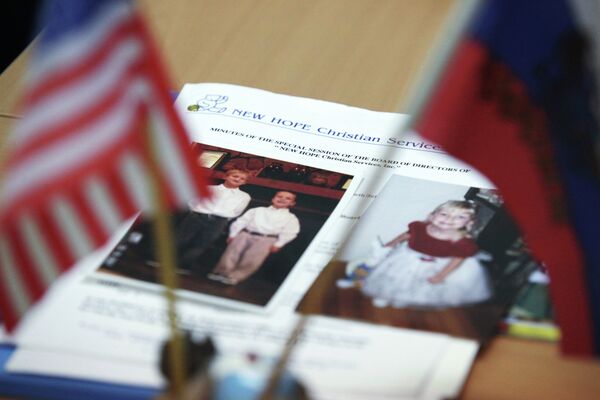MOSCOW, February 4 (RIA Novosti) – A survey released Tuesday by a state-run pollster has shown that almost two-thirds of Russians, or 64 percent, support a law banning adoptions by families in the United States.
While 52 percent of Russians believe the legislation was helpful to the country’s orphans, only 20 percent of respondents in the VTsIOM survey said they opposed the law.
The “Dima Yakovlev Law” banning US adoptions went into effect last January and was named after a 21-month-old Russian boy who died of heatstroke in July 2008 after his American adoptive father left him in the back seat of his car for nine hours.
Lurid descriptions of alleged maltreatment of adoptees by US parents have featured frequently in reports on Russian television, helping boost popular support for a law that sparked an outcry among people who condemned the law for potentially denying thousands of children the chance of finding a family.
Some 27 percent of those supporting the law said “the United States humiliated our children,” while 26 percent said Russian children should stay in the country.
Another 19 percent of respondents in the poll, which surveyed 1,600 people in 130 towns and cities, said Russian children would be unsafe in the United States.
Approval for the adoption ban has risen since the same period last, when it stood at 54 percent.
The pollster said one year after approval of the law, the percentage of Russians familiar with the legislation had fallen from 85 percent to 78 percent, while 21 percent of respondents said they had no idea about it.
VTsIOM said the statistical margin of error in its survey did not exceed 3.4 percent.
A similar poll conducted by Russia's independent Levada Center late last month said support for the Dima Yakovlev law grew by 11 percent within one year to 32 percent.
In December, Prime Minister Dmitry Medvedev praised the law, claiming it had prompted more Russians to adopt, even though 95 children affected by the legislation remain without a family.
The government has undertaken an advertising campaign to promote domestic adoption that aims to quell fears of the expense of money and time that the process is generally assumed to entail.
The number of those awaiting adoption now stands at about 109,000 children, according to Education Ministry data.


